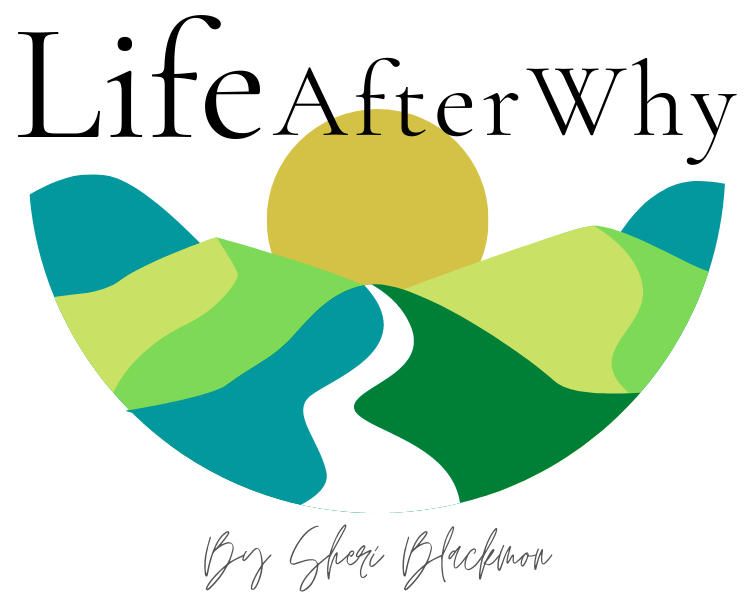Surprised by Joy During Chemo
Can you enjoy a full life during hardships? Here’s how I experienced “flow” at an unlikely time, in an unlikely place.
It’s strange but true to say I feel alive entering the infusion room at the clinic. Two special nurses, Tess and Linda, are there. I hand each of them an envelope with my reflections about them, which later become blog posts (See https://lifeafterwhy.com/blog/wounded-healers-heal-wounds and https://lifeafterwhy.com/blog/on-conquering-chemo-fears.) Lauren, my previous chemo companion, suggests I tell them of my appreciation, sooner rather than later. I sit down in a quiet corner framed by an arboreal view of pink and purple crape myrtle blooms in the parking lot below. Serenity pervades the room.
Tess approaches me with a hug and words of appreciation, my love language. We talk briefly and deeply as we’ve done before. A short time later Linda, tears welling up, embraces me and sits down to let me know she is touched. She’s trying to take her sister’s advice now because it helps her sister feel she is contributing to Linda’s life. She talks of being the giver in the relationship, a bit bossy and in control, but that she is working on it. There’s a bounce in her step as she leaves.
Why do I feel alive? The feeling is intense and invigorating; it’s almost like I shouldn’t be so happy there, but I am. The infusion center with its poisonous drugs is the epicenter of loss. When you’re going through cancer, loss looms and overshadows gains like a bankruptcy. You feel bereft, poor, and needy. Pain and fear crowd out pleasure and enjoyment. You have little to offer others, and you put your life on hold. Your world narrows down to healing. I’m invigorated because I have something to give again, a contribution to make, something others appreciate. I’m floating on a cloud of appreciation—for the nurses, for a purpose, for joy where I least expect it—like a cherub on a cloud.
I’m in a place of “flow” as seen in psychologist Mihaly Csikszentmihalyi's famous investigations of "optimal experience," which reveal what makes an experience genuinely satisfying. During flow, people typically feel deep enjoyment, creativity, and a total involvement with life. I’m feeling flow not as a teacher facilitating a discussion of Lord of the Flies, not as a colleague playing with evocative poetry at a department meeting, not as a speaker helping teachers wrestle with world view issues, but as a cancer patient in an infusion center, an unlikely time and place. Flow isn’t confined to conventional places; it can’t be controlled and manipulated; it just shows up. Flow flexes because it’s connected to who you are, not where you are or what you do. I suspect that this is what it means to have a calling. I’ve had two professional callings in my life: pastor and teacher. Is writing a new calling for me? I’m afraid to ask.
These brave nurses have a calling. They voluntarily step into the stark realities of life and death every Monday morning offering cheer, dignity, and kindness. They contribute to my welfare with the noble craft of nursing and I thank them with my writing. It’s more than give and take. There’s a synergy that forms a kind of choreographed and free-spirited dance. Design and mystery are suspended in perfect balance. Maybe this is what the plastic surgeon discovered after his grief over the death of his daughter took its course, the power offering ourselves to others and feeling appreciated. See post at https://lifeafterwhy.com/home/when-you-find-yourself-in-the-one-to-two-percent-of-medical-statistics.I glimpse the possibilities of life after why.
A calling expresses a unique self, “that being” which lives within us, as Gerard Manley Hopkins captures in his evocative poem “As Kingfishers Catch Fire”:
“Each mortal thing does one thing and the same:
Deals out that being indoors each one dwells;
Selves—goes itself; myself it speaks and spells,
Crying What I do is me: for that I came.”
The poem is about how things in nature project their essence through what they do. We, too, express (“deal out”) the self (“being”) that is inside us. “Selves,” a noun used as a verb, puts muscle on self-expression. The self that “speaks and spells” knows itself and why it’s here. It’s here for more than self-expression, for a beautiful embodiment of justice and grace in limbs and eyes, as the next stanza advances. (To read the poem click here: https://www.poetryfoundation.org/poems/44389/as-kingfishers-catch-fire)
I appreciate people who embody a calling, and I want them to know it. Nurses of infusion centers and offices, clinics, hospitals, or the field meet us in our vulnerability and treat us with compassion and worth. They work long shifts, keep their heads in emergencies, direct, encourage and guide their patients. They overlook crankiness and do the tasks most people won’t do, all without causing embarrassment or shame. They remain long after our treatment is done, often unaware of their impact on our lives. They celebrate when patients return to say hi like the young man whose transplant worked a year ago and is now busy keeping up with his children’s soccer and school schedules. They mourn the losses like the oncology nurse who visited her friend with cancer each day after work as his health declined and failed. Nurses deserve to know how vital their work is, how our hearts bond to theirs forever in times of crisis and fear.
